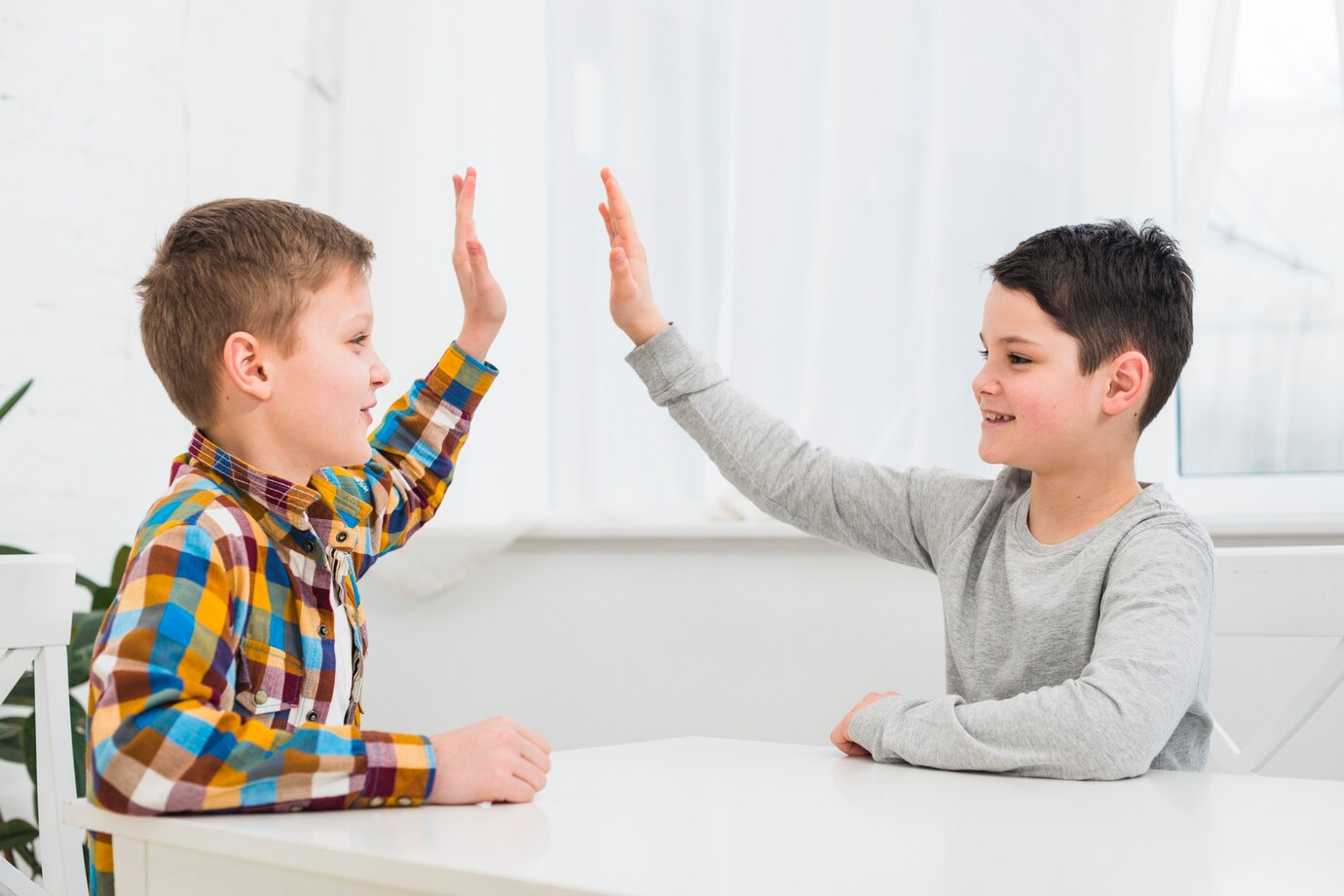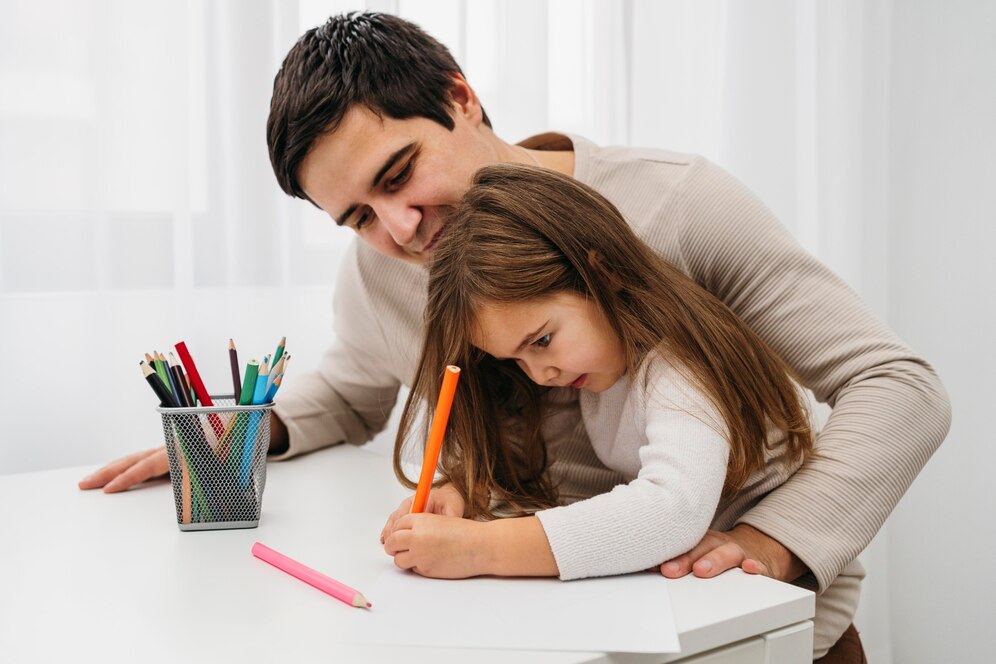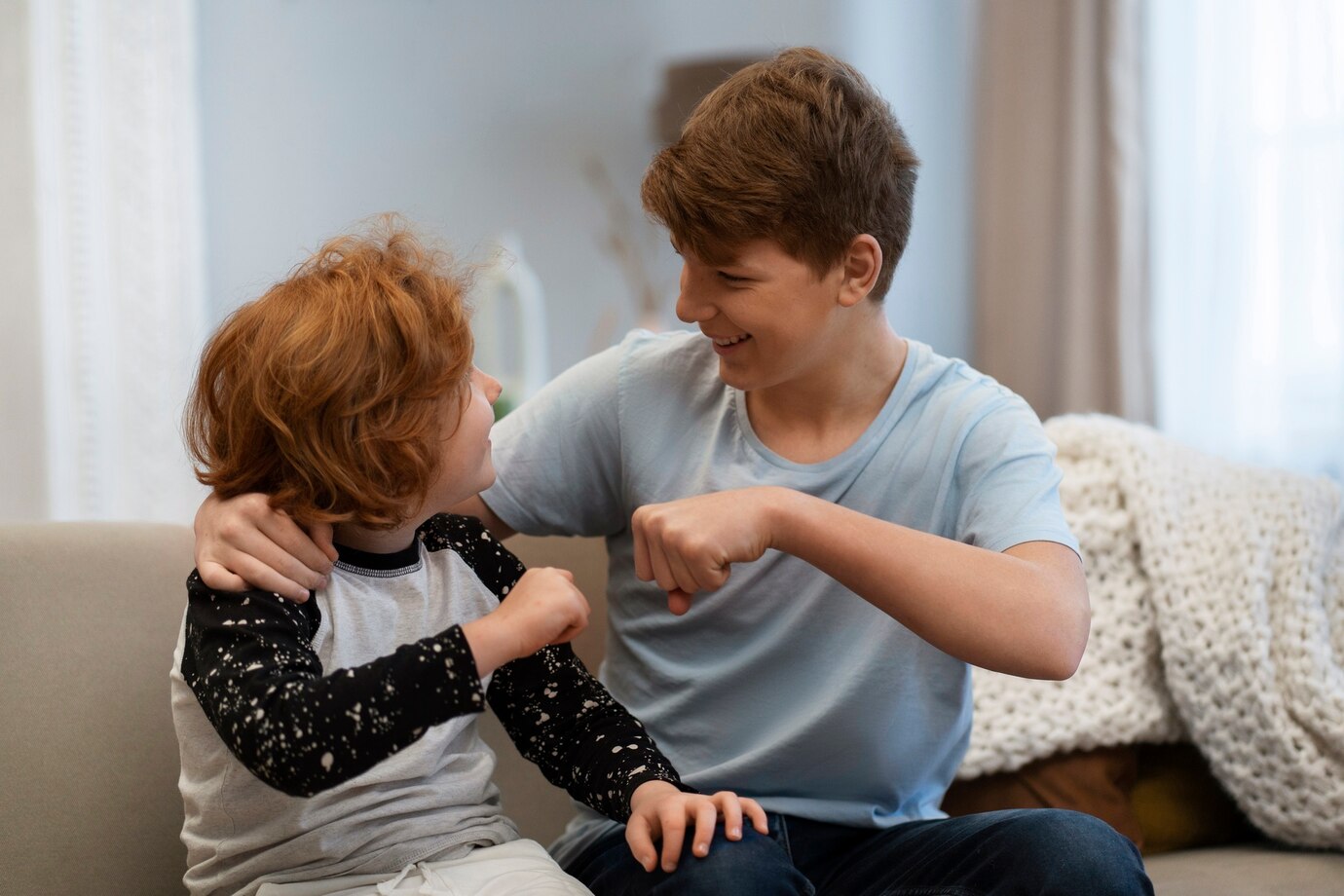
How to Encourage Good Manners and Social Skills
Technology in itself is omnipresent in the fast-paced world of today. But teaching kids respect and good manners is so important. Well-educated kids are a challenge for both parents and teachers. They want kids who can navigate social situations “with grace.” But good manners and social skills are more than just “please” and “thank you.” They are the foundation for respectful communication and healthy relationships.
So, let us check out how to teach manners and some of the best manners to be taught in this blog. This makes them civilised and social beings. First, we will consider everyday interactions and social skills. This will enable us to promote kindness, empathy, and confidence in children.
Key Benefits of Teaching Good Manners and Social Skills

Teaching kids respect and good manners is key to their growth and fitting in. Here’s why it matters:
1. Building Strong Relationships
Good manners help kids interact positively. This makes it easier for them to make friends and keep healthy relationships. Respectful communication is key to resolving conflicts and understanding others’ perspectives.
2. Enhancing Self-Esteem
Children who master social skills tend to have higher self-esteem. They feel more confident when they interact with others. This boosts their self-image and helps them adapt socially.
3. Professional Success
Manners and social skills are not just important in personal life but also in professional settings. Employers want workers who communicate well and collaborate effectively. These skills are key to lasting success.
4. Cultural Awareness
Understanding and practising good manners helps children appreciate cultural differences and fosters inclusivity. This awareness is vital in our diverse society and prepares them for global interactions.
5. Developing Empathy
Teaching kids respect and manners encourages empathy. Kids learn to think about how others feel and react well. This is key for emotional intelligence and strong relationships.
Step-by-Step Guide to Encouraging Good Manners and Social Skills
Step 1: Lead by Example
Children learn by observing the adults around them. Demonstrate respectful behaviour in your interactions with others. Use polite language, listen actively, and show empathy. Your actions will serve as a powerful model for your child.
Step 2: Teach the Basics Early
Introduce basic manners to children from a young age. Simple phrases like “please,” “thank you,” and “excuse me” should be part of their daily vocabulary. Explain the importance of these words and how they make interactions more pleasant.
Step 3: Role-Playing Scenarios
Role-playing can be an effective way to teach social skills.
- Set up a playdate where your child meets a new friend. Encourage them to say hello and ask questions.
- Role-play a disagreement over a toy. Guide your child to express their feelings and find a solution.
- Visit a local park. Have your child introduce themselves to other kids playing nearby.
- Organise a family game night. Let your child take turns explaining the rules to others.
- Go to a community event. Encourage your child to ask someone about their favourite activity.
Provide feedback and guidance to help them improve their responses.
Step 4: Encourage Active Listening
Active listening is a crucial communication skill. Teach your child to listen attentively when others speak, make eye contact, and respond appropriately. This skill will help them understand others’ perspectives and improve their communication abilities.
Step 5: Foster Empathy Through Stories
Reading stories that highlight empathy and kindness can be a powerful tool. Discuss the characters’ actions and feelings with your child. Ask questions like, “How do you think they felt?” or “What would you have done in their place?” to encourage emotional understanding.
Step 6: Practise Gratitude
Encouraging gratitude can enhance social skills. Teach your child to express appreciation for others’ kindness and efforts. Gratitude journals or daily reflections can help reinforce this habit and create a positive mindset.
Step 7: Encourage Group Activities
Involvement in group activities, such as team sports or clubs, can improve social skills. These settings help children practice cooperation, communication, and conflict resolution. These skills are important for their future interactions.
Step 8: Address Mistakes Gently
Children will inevitably make mistakes as they learn. Address these moments with patience and understanding. Turn them into teaching moments instead of punishment. This way, you can help learning to grow without discouraging anyone.
Additional Expert Tips & Common Mistakes to Avoid

Expert Tips
- Consistency is Key: Reinforce good manners consistently. Praise your child when they display positive behaviour and gently correct them when they slip up.
- Use Positive Reinforcement: Reward good behaviour with praise or small rewards. Positive reinforcement encourages children to repeat desired actions.
- Create a Respectful Environment: Ensure that your home environment is respectful and supportive. Encourage open communication and respect for everyone’s opinions.
Common Mistakes to Avoid
- Neglecting to Practise What You Preach: Children are quick to notice inconsistencies. Ensure your actions align with the values you teach.
- Overemphasising Perfection: Expecting perfection can be discouraging. Focus on progress and effort rather than flawless behaviour.
- Ignoring Cultural Context: Be mindful of cultural differences in manners and social norms. Teach your child to appreciate and respect diversity.
Advanced Insights and Expert Recommendations
Encouraging Emotional Intelligence
Emotional intelligence is closely linked to social skills. Encourage your child to recognise and express their emotions in healthy ways. Help them recognise emotions in others. Then, teach them to respond with empathy. This will boost their ability to connect with people.
Utilising Technology Wisely
Incorporate technology as a tool for learning social skills. Educational apps and online resources offer fun ways to practice manners and communication. However, balance is crucial—limit screen time to ensure face-to-face interactions remain a priority.
Engaging in Community Service
Community service projects offer valuable opportunities for children to practise respect and empathy. Charitable activities help children see different viewpoints. They learn to give back to society and feel more responsible.
Building a Kinder World, One Child at a Time

Teaching kids respect and good manners is an investment in their future. Parents and educators can use this guide to teach essential skills. This helps children succeed both personally and professionally.
Mastering social skills takes time. Be patient and stay consistent. Encourage your child to practice kindness, empathy, and respect every day. This will help them grow into confident, social individuals. They move through the world with grace and understanding. This will surely help them positively influence others.
In a changing world, good communication is always important. It helps us connect and respect each other. Start today, and inspire the next generation to lead with kindness and integrity.